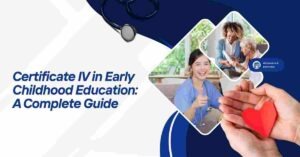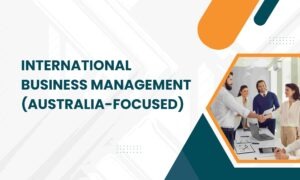Introduction
In the UK, online courses have burst into mainstream learning—whether you’re looking to upgrade digital skills, explore humanities, or gain vocational qualifications. Free or low-cost courses are widely accessible, often government-backed, and many offer certificates to showcase achievement. This guide helps you discover the best online learning platforms, top subject areas, funding routes, and practical advice to succeed.
1. Why Choose Online Courses in the UK?
Flexibility: Study at your own pace, from anywhere in the world.
Affordability: Many courses are free or low-cost, and some include free certificates.
Wide variety: From coding to caring, science to soft skills—there’s something for everyone.
Career-relevance: Employers increasingly value continuous, formal and informal online learning.
2. Leading UK Platforms Offering Online Courses
OpenLearn by The Open University
Completely free learning library with over 1,000 courses. Many courses award a free digital badge or certificate. Subjects include health, education, languages, computing, and more. Reed
FutureLearn
Offers short, UK university–backed courses across business, healthcare, psychology, history, tech, and more. Many courses are free to access (certificate optional). From partnerships with universities like the University of London and Leeds. Reddit
Alison
Thousands of free courses in areas such as IT, business, language, and health. Digital certificates are often free or low-cost. Reddit
Reed.co.uk Free Courses
Features a wide range of free accredited online courses in IT, management, healthcare, and more, many including tutor support and certificates. WIRED+9Reed+9Reed+9
3. Government‑Backed and Free Learning Opportunities
Skills for Life & Free Courses for Jobs
A national UK initiative offering free Level 3 qualifications (equivalent to A levels) in sectors like health, digital, construction, engineering, business, and social care. Adults aged 19+ who earn below a certain threshold or are unemployed are often eligible. GOV.UK
The Skills Toolkit
A curated portal of free digital and numeracy skills courses, working with partners such as FutureLearn and Open University. Many courses provide free certificates or digital badges. Wikipedia
National Careers Service Online Learning Finder
Helps users identify free or government-subsidized online courses in areas like maths, English, digital, business, and health & social care. The Sun+11National Careers Service+11Reddit+11
4. Top Universities Offering Free Online Coursework
Many UK universities offer MOOCs (Massive Open Online Courses) through platforms like FutureLearn and edX:
University of Edinburgh (data science, philosophy, marketing) GOV.UK+3Colleges in the UK+3Class Central+3
University of London (business, web development, professional skills) Colleges in the UK
Imperial College London (STEM, maths, COVID science) Colleges in the UK
University of Oxford (economics, history, social trends) Colleges in the UK
University of Cambridge (English teaching, business English, education) Colleges in the UK
University of Glasgow (health, gender equality, global health) Colleges in the UK
You can often audit these courses for free and optionally pay for a certificate if required.
5. Popular Subjects and Learning Goals
Digital & IT Skills
Basic digital literacy, coding, cybersecurity, Microsoft Office, data analytics. Perfect for job seekers or those reskilling. Colleges in the UK+1Reed+1Wikipedia
Health & Social Care
Courses covering safeguarding, mental health, nutrition, and infection control—good for NHS roles and care assistants. National Careers ServiceUK Startup Magazine
Business & Professional Skills
Covers leadership, customer service, financial basics, CV/interview training, project management. National Careers Service
Personal Development & Creativity
Courses in psychology, writing, languages, sustainability, and well‑being. Class CentralThe Sun
6. Certificates—How They Work and Why They Matter
Platforms like OpenLearn and Alison often provide free digital certificates or badges for your profile and CV. WIRED
Some FutureLearn or Coursera courses offer free access to content; certificates are optional and may carry a fee.
Government-funded Level 3 courses produce full qualifications at no cost to eligible learners. GOV.UK
Certificates are not always academic credit, but they demonstrate commitment, skill acquisition, and can boost employability.
7. How to Enrol and Choose a Course
Define your goal (career shift, hobby, employability, digital skills)
Browse platforms: OpenLearn, FutureLearn, Alison, Reed, government portals
Filter by certificate availability—look for digital completion badges
Review time commitment: most free courses are 2–12 weeks (5–20 hours total)
Confirm recognition: ensure the platform or provider is reputable and, if needed, government-regulated
Register and begin learning—typically with just an email and basic details
8. Tips for Adult Learners to Succeed Online
Set a study habit: even a couple of hours weekly helps momentum
Take notes or summaries: reinforce learning and build a portfolio
Engage in forums: platforms like FutureLearn include peer interaction
Apply knowledge immediately: write summaries, practice tools, plan a mock project
Keep certificates safe: store them digitally and update your CV or LinkedIn profile
9. Final Thoughts
Online courses in the UK offer a wealth of learning—often free, widely accessible, and connected to real-world skills. Whether you’re aiming for a job change, academic enrichment, or simply lifelong learning, the landscape is rich with opportunity.
Start by exploring OpenLearn for structured short courses with free certificates. Then check FutureLearn, Reed, and Alison for specialist topics. And if you’re eligible, consider fully funded Level 3 courses via government schemes.
Education is no longer boxed into traditional pathways—make the most of it today.
Read more: Government Funded Courses for Over 40s (UK Guide)







